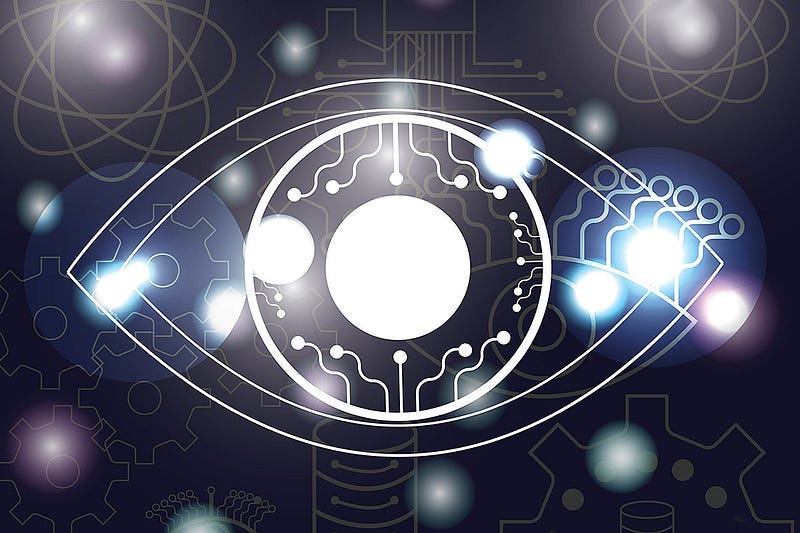Nobody Knows
You have the right to keep secrets.
While that idea is not enshrined in so many words in the Constitution, it is nonetheless one of the more important underpinnings of a free society.
I’ve been reading On Tyranny by Timothy Snyder, a concise guide to navigating our times that I heartily recommend to all Americans. In it, he makes a statement that caught my attention:
“We are free only insofar as we exercise control over what people know about us, and in what circumstances they come to know it…Tyrants seek the hook on which to hang you. Try not to have hooks.”
Having lived in the internet age for over two decades now, it’s surprisingly easy to forget that there was a time when very few companies knew your personal business. When I write an email today, I assume that at the very least, Google and my ISP are storing its contents in case future retrieval is necessary. Google’s bots read my words and make ad-placement assumptions based on them.
The same happens when I post on social media. Netflix knows what I’m watching, Amazon knows what I’m reading, Apple knows what I’m listening to, Guitar Center knows how often I change my strings, Kroger knows how much toilet paper I buy…
Thinking about it, I can name very few aspects of my personal life that are not recorded and analyzed in some way by a corporation. I’m typing this on Microsoft Word to post on Substack, on a computer monitored by antivirus and other background software. The details of my life are known to a rather astonishing degree by the powers that be, in a way that they certainly were not 20 years ago.
I had a roommate in 1996 who bought a book called How to Disappear Completely and Never Be Found. It contained information on changing your Social Security number and dodging various methods to track your whereabouts. A quarter century on, the mind boggles to think of how one might go about disappearing today. Sure, people set up false identities online all the time, but eliminating all traces of your actual self and your financial, medical, and social activities seems a million times harder now.
The riposte that comes up every time someone frets about all of our data floating about willy nilly is that since absolutely everyone is being tracked, the likelihood of your specific info being seen by another human is next to nil. This carries a certain amount of logic, since the sheer mass of communication and economic telemetry we broadcast every day dwarfs the number of people who could possibly review every single shred of it. The trick is to stay off the radar.
But piss somebody off, and you’re toast. I know local law enforcement officials who keep an eye on known offenders’ Twitter accounts, where people too often tell more about their goings-on than they should if they don’t want to get caught. And it doesn’t even have to be criminal. Offend the wrong person, the embarrassing bits of your personal history can be plundered by the vengeful and broadcast to the world. Young candidates for political office are finding their early drunken party pictures and ill-considered naïve musings the fodder for opponents’ hatchet teams with an ease that would have made Nixon’s ratfucker squad salivate.
Imagine going off the grid now. I mean truly dropping out. Cash only, no internet, no phone, no GPS, no rewards memberships, your only correspondence conducted via typewriter, paper and a PO box. No car, if you don’t want the DMV knowing where you are, not to mention your insurance company. To say nothing of the feats of legerdemain required to stay off the IRS rolls. Even not going to quite that extreme, simply returning to 1990s levels of personal privacy essentially sounds like becoming the Unabomber.
What does all this mean for a free, democratic society? Knowing we have to watch our backs, that we should not post or send anything that we wouldn’t want plastered up on a billboard one day? To effectively keep ourselves to ourselves, we must practice a sort of mindfulness about our communication, whether online or in the retail world. It means turning down all the enticing offers of convenience presented to us every day by the data-driven culture we inhabit, whose target is the contents of our heads. To know us is to profit from us.
This has political ramifications as well. When we stand up to power, we must know that power will take every opportunity to discredit us, using our own words and deeds as ammunition. We must therefore be extra vigilant about what we put into the machine, knowing that the moment we run afoul of the system’s administrators, control over our privately-shared secrets is forfeit. Exes, opportunistic acquaintances, the unblinking eye of the internet, all of these may turn on us at a moment’s notice.
Check your digital history. Google yourself. Scroll through your Sent box. Scrub your social media trail. It is unfortunate that we have to consider these things, but faced with a budding authoritarian regime, it may be that reclaiming privacy is one of the most important preventative tools we have to make sure our resistance does not get lost in a sea of ad hominem backlash.
And in the process of cleaning up our act, maybe we can take the opportunity to reflect on just what it is we are putting out into the world about ourselves. In doing so, we may find a new appreciation of privacy.




